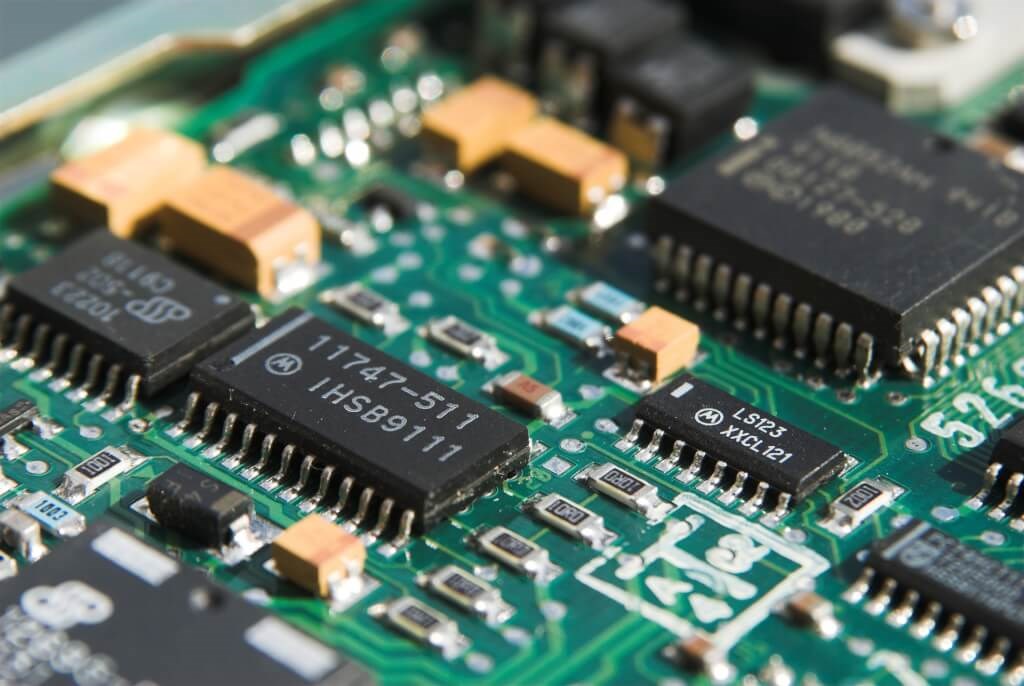Taipei, April 3 (CNA) Taiwan’s chip industry can now have a temporary reprieve, as semiconductors have been listed among imports exempted from the latest round of tariffs announced Wednesday by U.S. President Donald Trump, an analyst said Thursday.
The exemption of semiconductors gave some insight into Trump’s negotiation tactics, equity analyst Andy Hsu (許博傑) told CNA in a phone interview in Taipei.
“Trump made some tariff threats at first, then TSMC (Taiwan Semiconductor Manufacturing Co.) pledged massive investments in the United States,” Hsu said, referring to TSMC’s announcement on March 3 that it would invest another US$100 billion in the U.S. state of Arizona over the next few years.
“For now, Taiwan’s semiconductor industry can have a brief reprieve,” Hsu said. “But an unpredictable Trump means uncertainties remain, so I do not think the industry can stop worrying about tariff threats for too long.”
Furthermore, there are concerns about whether Trump would withhold the funding pledged by the previous U.S. administration for semiconductor investors such as TSMC under the CHIPS and Science Act, Hsu said.
The White House now has a goal to obtain billions more in commitments without the need to expand such grants, according to U.S. Commerce Secretary Howard Lutnick in a recent news report.
On Wednesday, Trump announced sweeping “reciprocal tariffs” on the U.S.’ trading partners, including a 32 percent tax on products from Taiwan, which will take effect on April 9.
At a Rose Garden event, Trump declared a 10 percent baseline tax on imports from all countries, set to take effect on April 5. Countries with larger trade surpluses with the U.S. will face higher duties beginning April 9, including Taiwan (32 percent), China (34 percent), Japan (24 percent), South Korea (25 percent), Vietnam (46 percent) and Thailand (36 percent), according to the White House.
An industrial expert told CNA Thursday that that the U.S. government might ask Taiwanese semiconductor suppliers to lower the prices of their products and services, including those in the pure wafer foundry, and IC designer, packaging and testing sectors.
While big suppliers can afford to drop prices to appease the U.S. government, their smaller counterparts cannot make such big cuts, which might lead to a decline in their shipments or even a full exit from the market eventually, said the expert, who asked not to be named.
Meanwhile, TSMC’s response to the U.S.’ latest tariff policies will be closely watched, as the company prepares to hold an investor conference on April 17, when it will release its first-quarter earnings data, give guidance for the second quarter and the entire year, and answer critical questions by investors on matters like U.S. tariffs.
Under TSMC’s new US$100 billion investment plan, it aims to build three more advanced wafer fabs, two IC assembly plants and one research and development center in Arizona, which bring its total investments there to US$165 billion.
The chipmaker is already investing US$65 billion in Arizona to build three wafer fabs, the first of which started mass production at the end of 2024, using the sophisticated 4 nanometer process.
The second fab is under construction and is scheduled to begin commercial production in 2028, using the more sophisticated 3 nm, 2 nm, and A16 processes. TSMC Vice President for global policy Peter Cleveland said last week that the company is seeking to break ground on the third fab as soon as possible.
Trump has said publicly on several occasions that TSMC’s investments in the U.S. will hit US$200 billion or even US$300 billion, which analysts said raises the question of whether the Taiwanese chipmaker will pour more even funds into the U.S. amid the tariff threats.
Analysts have said there is also some worry about leaks of TSMC trade secrets if it yields to prospective U.S. government pressure to take a stake in Intel Corp.’s factories to improve the American chipmaker’s pure play foundry operations.
